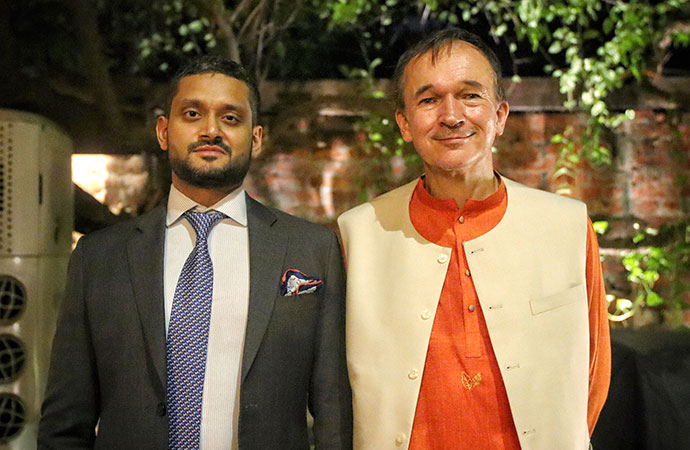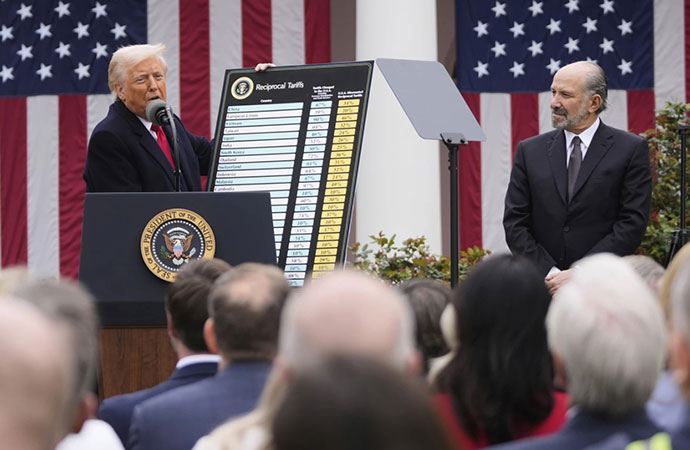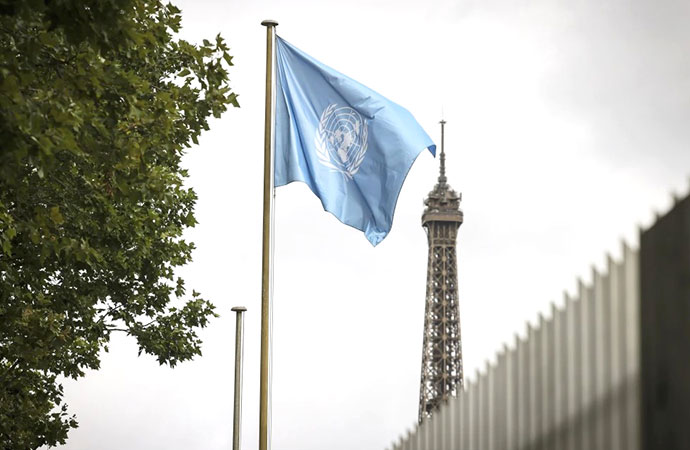Essays

Masud Jamil Khan, Deputy Managing Director of Cosmos Group & the Honorary Consul of Ireland in Bangladesh, left, and Andre Carstens, Ambassador of the Netherlands to Bangladesh. Photo: UNB
It is with a heavy heart that I will be saying goodbye to Andre Carstens, Ambassador of The Netherlands to Bangladesh. He is an avid cyclist who cycled 160 km from Barishal to the Sunderban. There, he visited the WIldTeam Conservation Center. He is a friend of the Royal Bengal Tiger.
The Netherlands and Bangladesh are both deltaic regions. As such, Dutch-Bangla friendship and cooperation stretch over decades, and would seem to be locked in through the framework of the Bangladesh Delta Plan. The Netherlands is partnering Bangladesh in arguably its most important, most long-term, and potentially most transformative project: the Delta Plan 2100.
Water management is a major challenge in Bangladesh, where spatial and seasonal availability of surface and groundwater depend mainly on the monsoon climate and the physiography of the country. During the monsoon enormous amounts of water need to be drained out towards the ocean, while during the dry season often there is not enough fresh water available. About 80 percent of the rainfall is concentrated in five rainy months (May to September) - the monsoon season.
Water scarcity is the main problem in the Barind region, making it drought-prone. The water table in this region has dropped to 70,000 to 80,000 feet under the surface, according to credible studies. The government is taking measures to reserve rainwater in the region for irrigation and other uses under the Delta Plan 2100, with help from Dutch government and experts.
Sanitation and shortage of drinking water are the problems in the Haor areas, where the government will dredge rivers to reserve rainwater as well as prevent flash floods. The plan reportedly includes work to prevent salinity, and the pernicious effects of cyclones and other natural disasters.
In the coming decades, Bangladesh will be confronted with increasing flood risks, challenges regarding water quality, droughts and salinity due to the climate change. Proper management of water resources is essential for the future development of Bangladesh.
Key elements of a strategy in this case include restoration and harnessing of surface water, entering bilateral agreements for sharing water of trans-boundary rivers, drawing up a river and canal management plan, increasing the water use efficiency and reducing waste, proper ground water management and water pollution management. The Dutch are regarded as the world-beaters in many of these fields.
Ambassador Carstens has done his best to take forward the two countries' relations during his stint here, and I wish him the best in all his future ventures, wherever they might take him.

























Leave a Comment
Recent Posts
Religion and Politics: A Toxic ...
At Dhaka University, cafeteria workers have been told not to wear shor ...
Enayetullah Khan joins AsiaNet ...
AsiaNet’s annual board meeting and forum was held in Singapore, ...
In a New York minute
Many leaders back a UN call to address challenges to ..
Defaulted loans at Non-Bank Financial Institutions ( ..
How the late Zubeen Garg embodied cultural affinitie ..